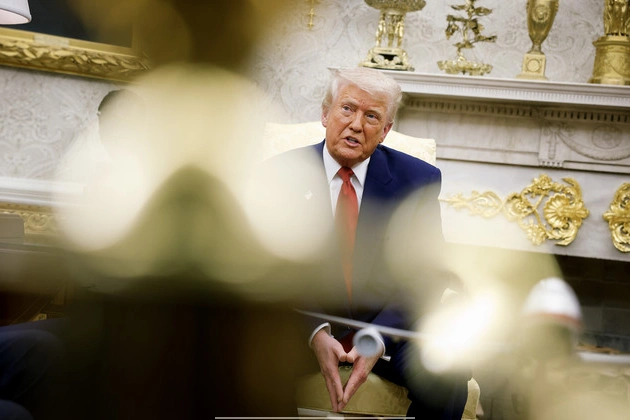
President Donald Trump announced the commencement of ‘direct’ talks with Iran regarding its nuclear program, emphasizing the critical nature of successful negotiations to avert potential dangers. In a press briefing alongside Israeli Prime Minister Benjamin Netanyahu, Trump highlighted the urgency of preventing Iran from obtaining nuclear weapons.
These developments come amid Iran’s reluctance to engage in direct discussions with the United States concerning its nuclear activities. Despite Trump’s outreach, including a letter to Iran’s supreme leader Ayatollah Ali Khamenei, Tehran’s response remains uncertain.
Netanyahu’s Cautionary Stance
Netanyahu echoed Trump’s sentiments by issuing a veiled warning to Iran, stressing the need to prevent Iran from acquiring nuclear capabilities through diplomatic means resembling the Libyan model. However, both leaders acknowledged the potential for military action if diplomatic efforts falter.
The Trump administration’s approach to Iran has sparked debates within political circles, with conflicting views on the necessity of military interventions in the Middle East. While some officials advocate for a robust stance against Iran, others urge restraint and diplomacy.
External commentators from various political persuasions express concerns over the implications of escalating tensions with Iran. Conservative voices caution against precipitous military actions, emphasizing the need for strategic diplomacy to address Iran’s nuclear ambitions.
Challenges and Diplomatic Balancing Act
Iran’s rejection of direct talks with Trump underscores the complexities of diplomatic engagements in the region. Iranian officials advocate for indirect negotiations, questioning the effectiveness of Trump’s approach that combines dialogue with threats.
Israeli officials remain vigilant, wary of potential delays in Iranian nuclear advancements during negotiations. They fear that any diplomatic engagement could provide Iran with opportunities to strengthen its nuclear program and support proxy militant groups in the region.
Trump’s decision to withdraw from the Iran nuclear deal and pursue alternative diplomatic strategies necessitates a delicate balance between dialogue and deterrence. The international community closely monitors Iran’s nuclear activities and the potential for significant military repercussions in the region.
The Path Ahead
As diplomatic efforts unfold, Trump faces the challenge of preventing Iran from crossing the nuclear threshold while avoiding destabilizing military actions. Strategic diplomacy and international cooperation remain essential to address Iran’s nuclear ambitions and regional security concerns.
Amidst ongoing tensions and diplomatic maneuvers, the specter of a nuclear-armed Iran looms large, necessitating proactive measures to ensure regional stability and prevent a potential arms race.











